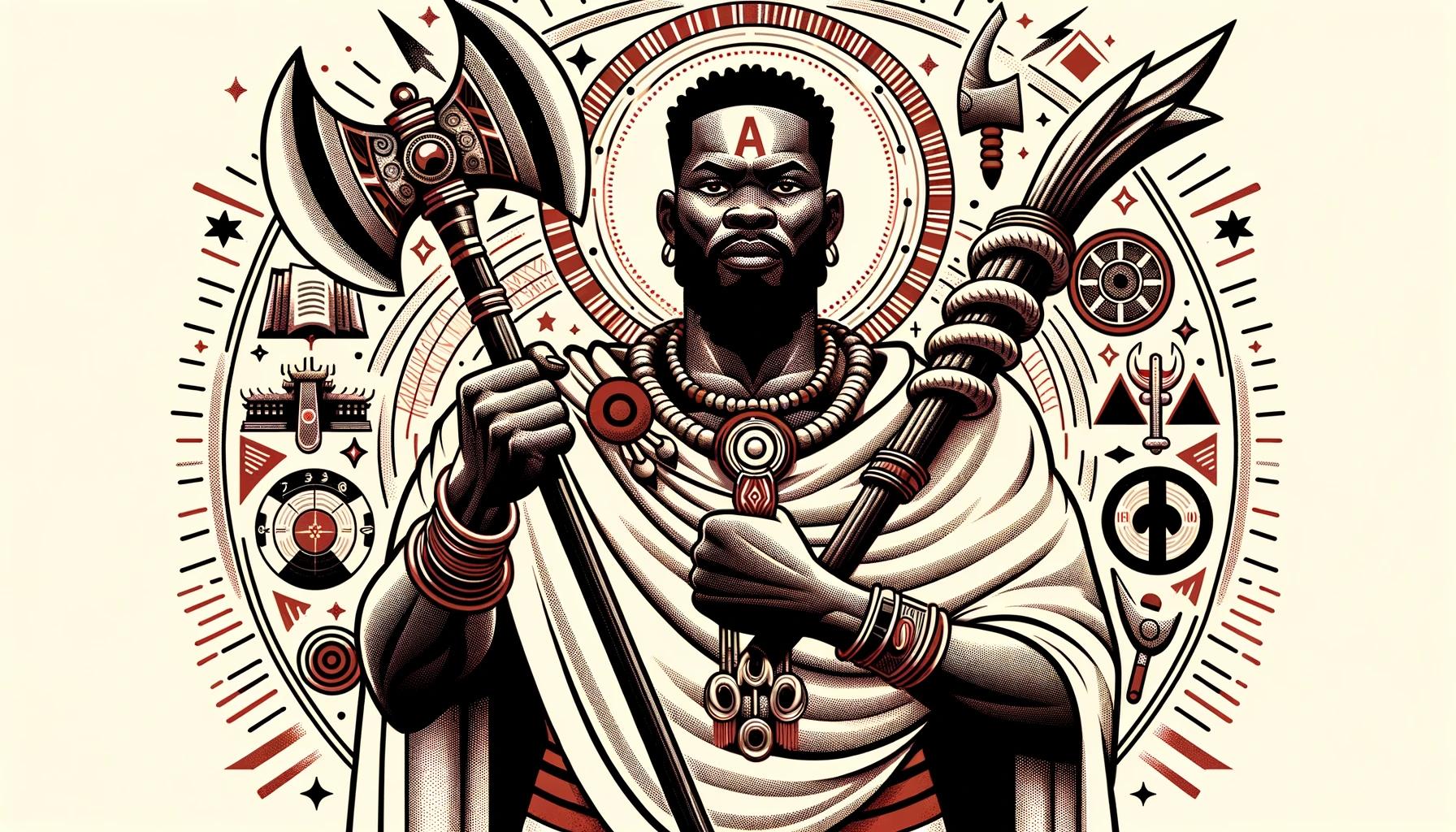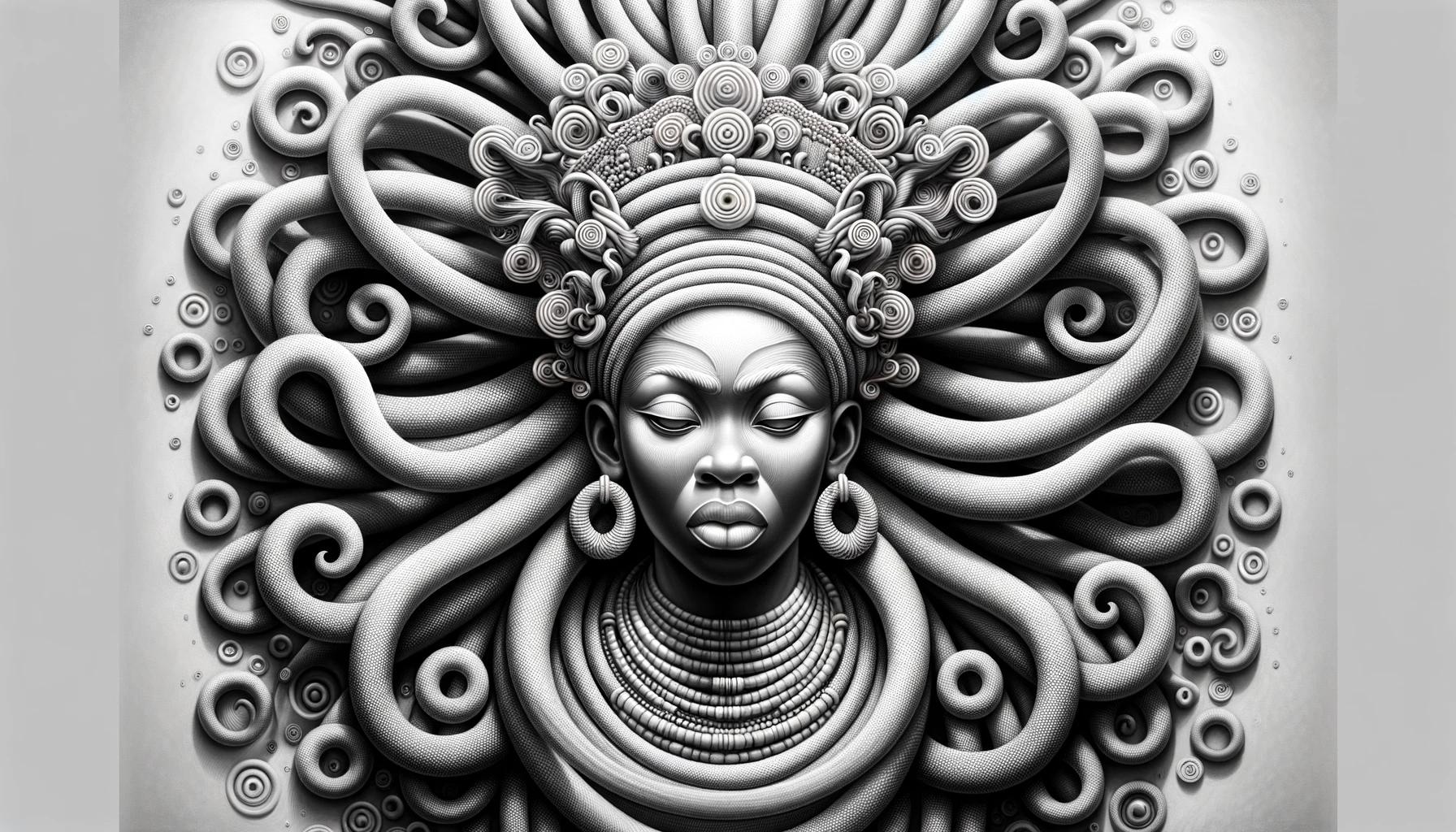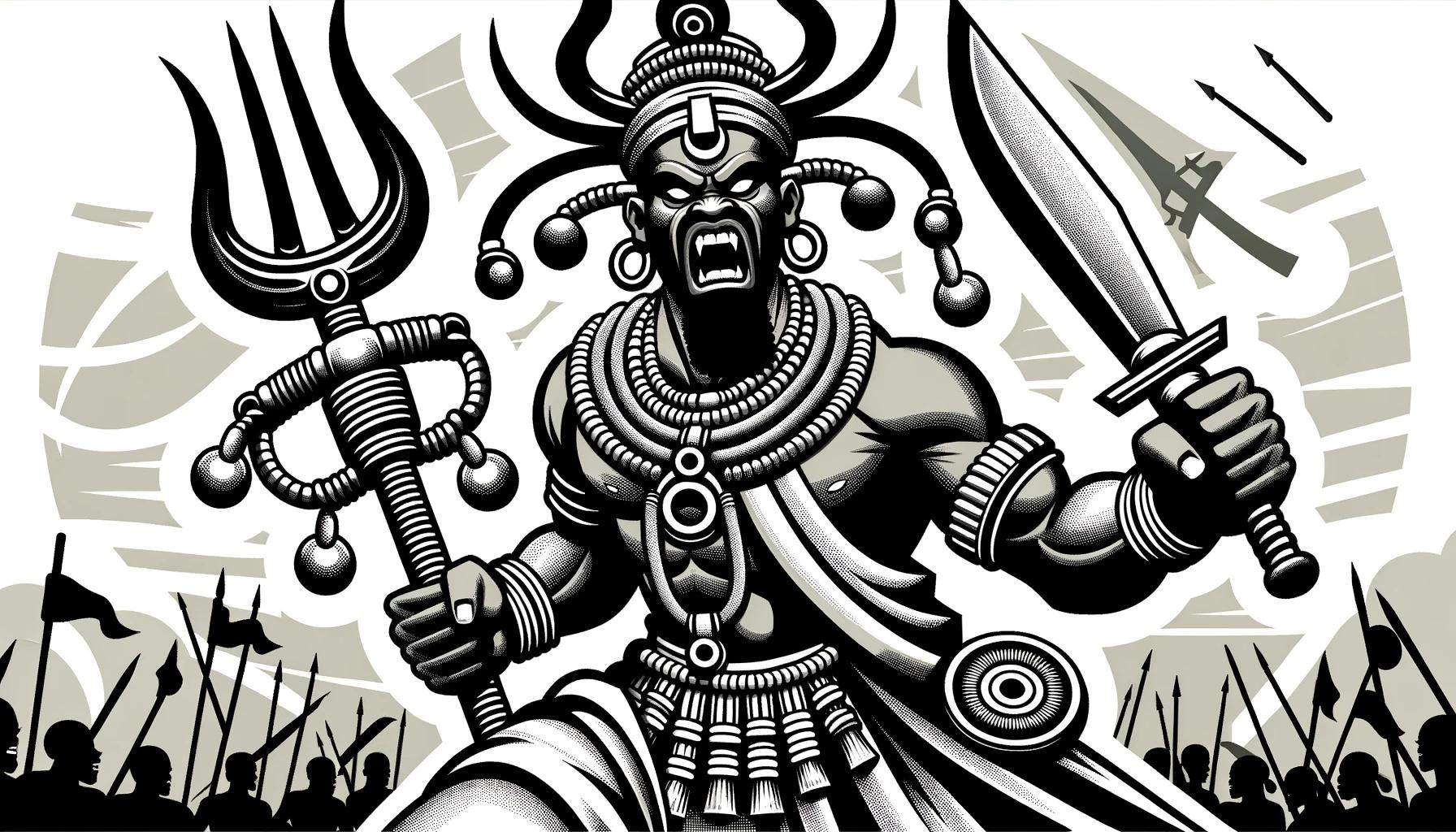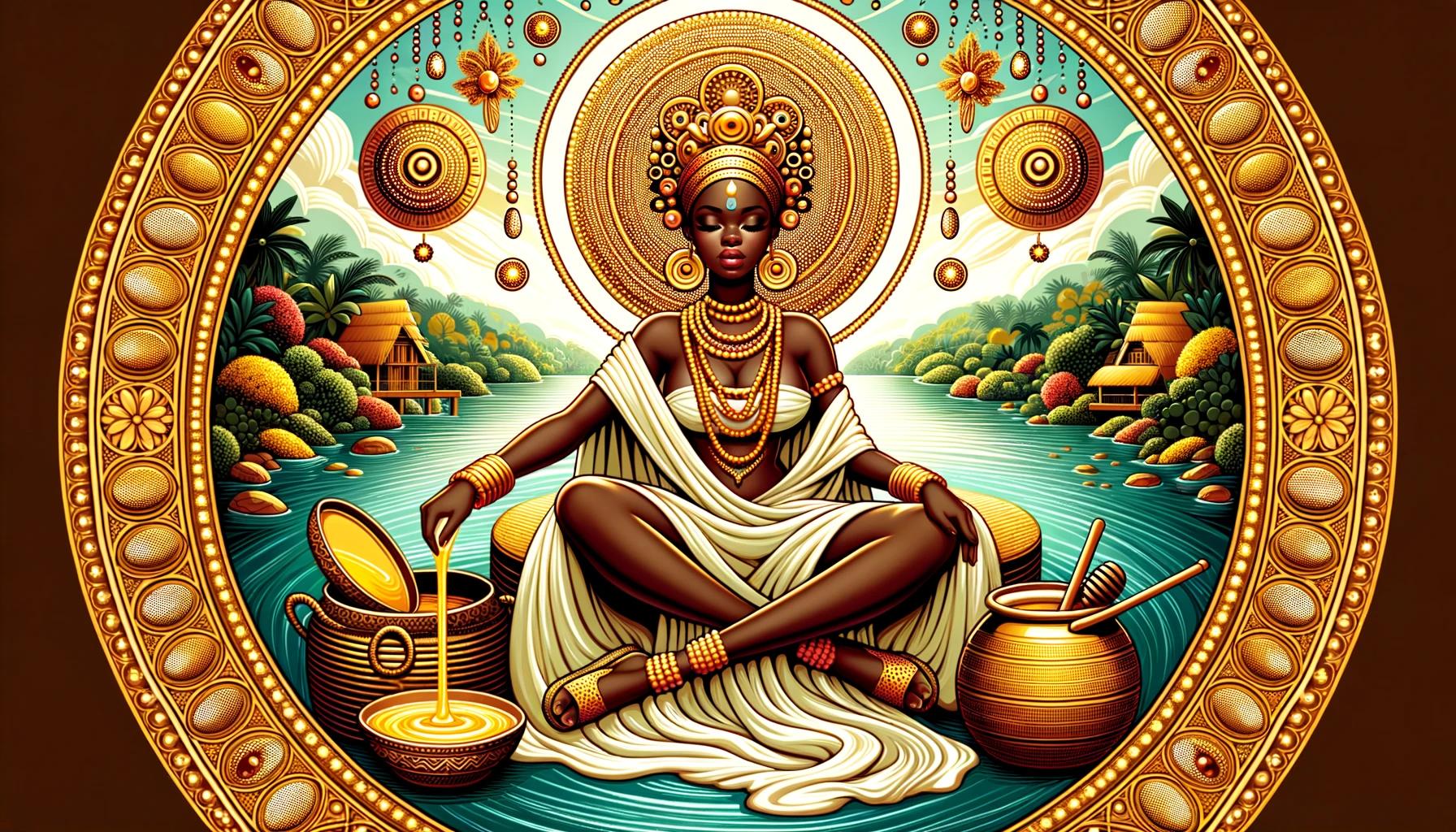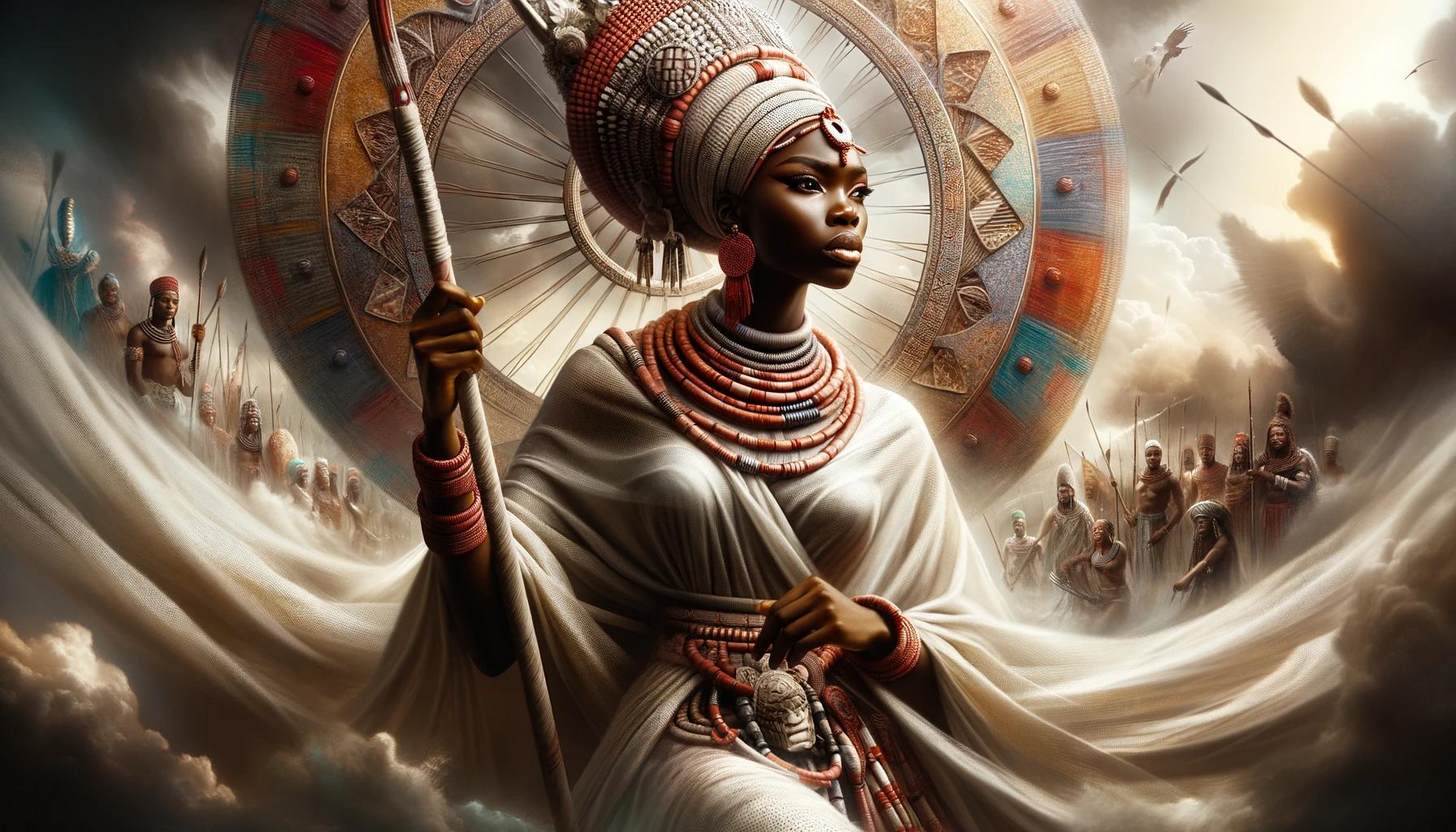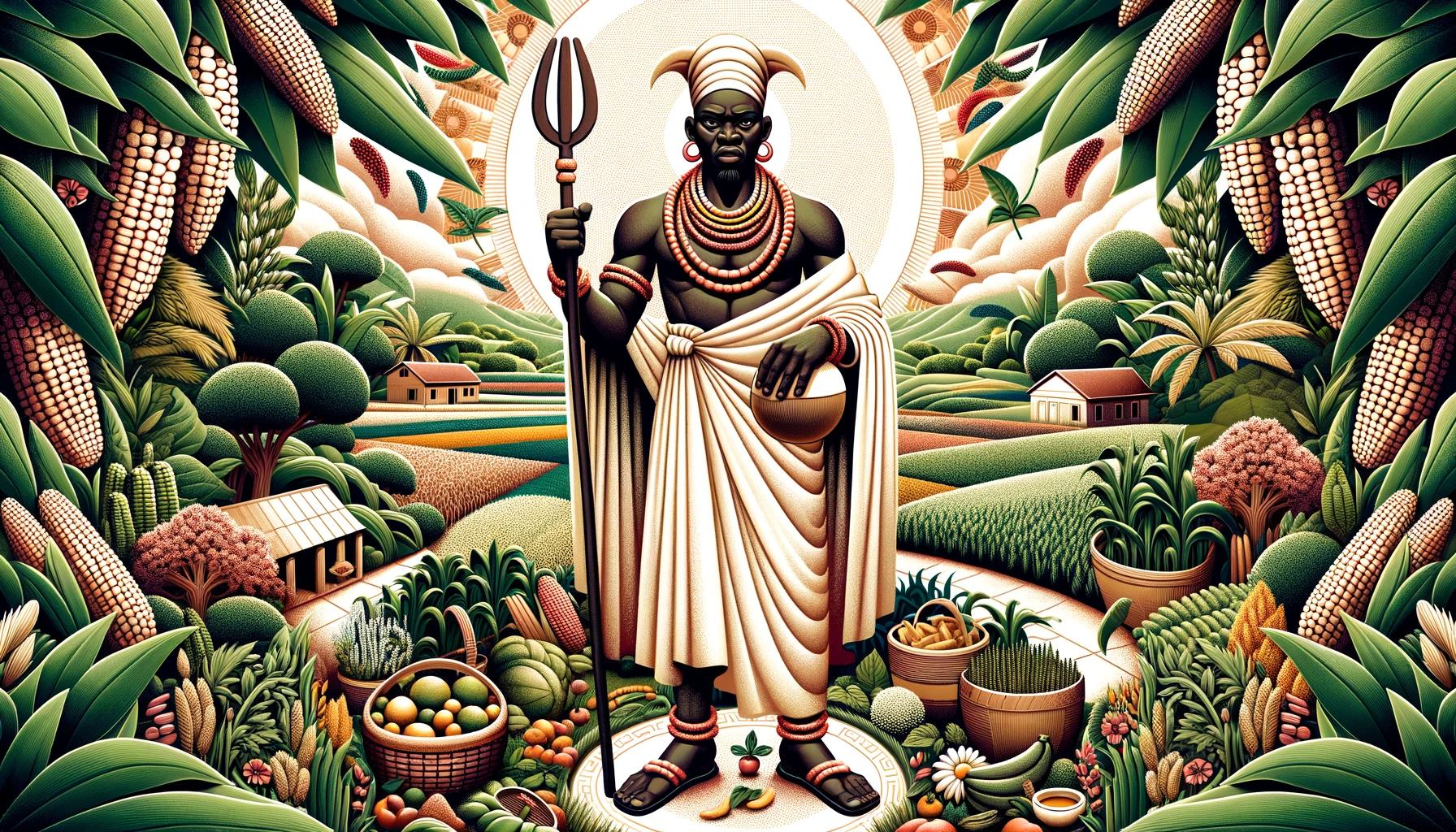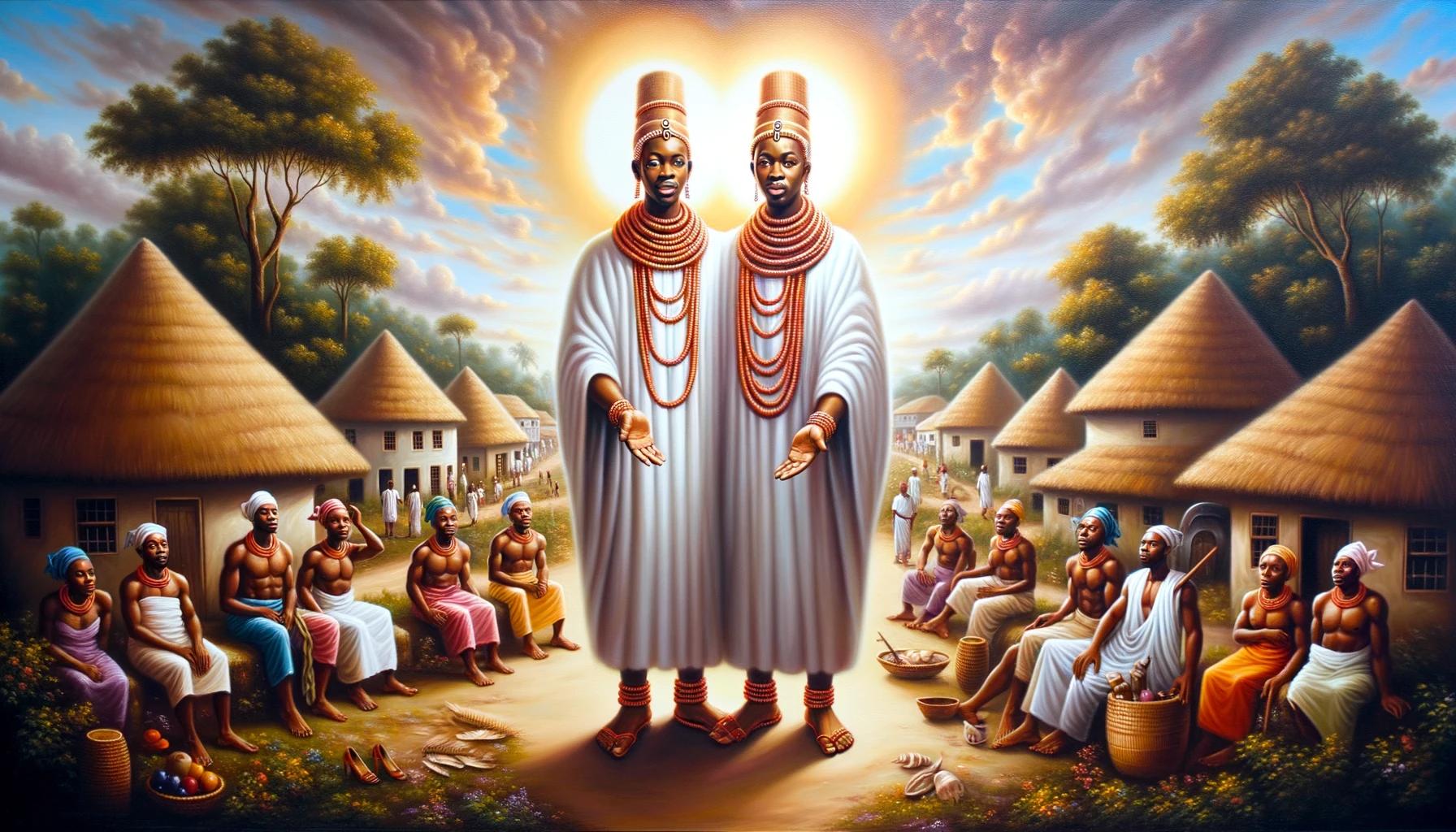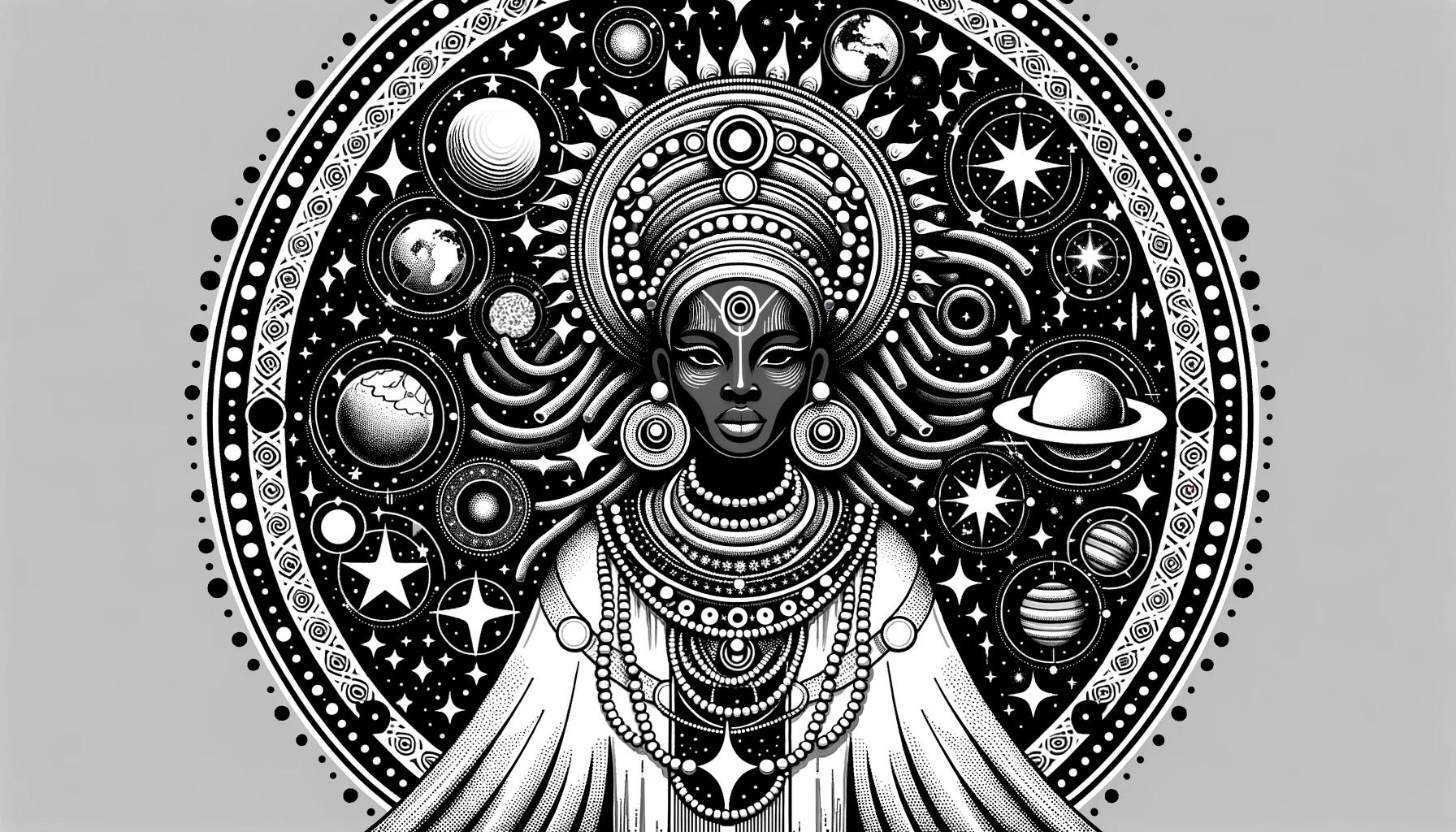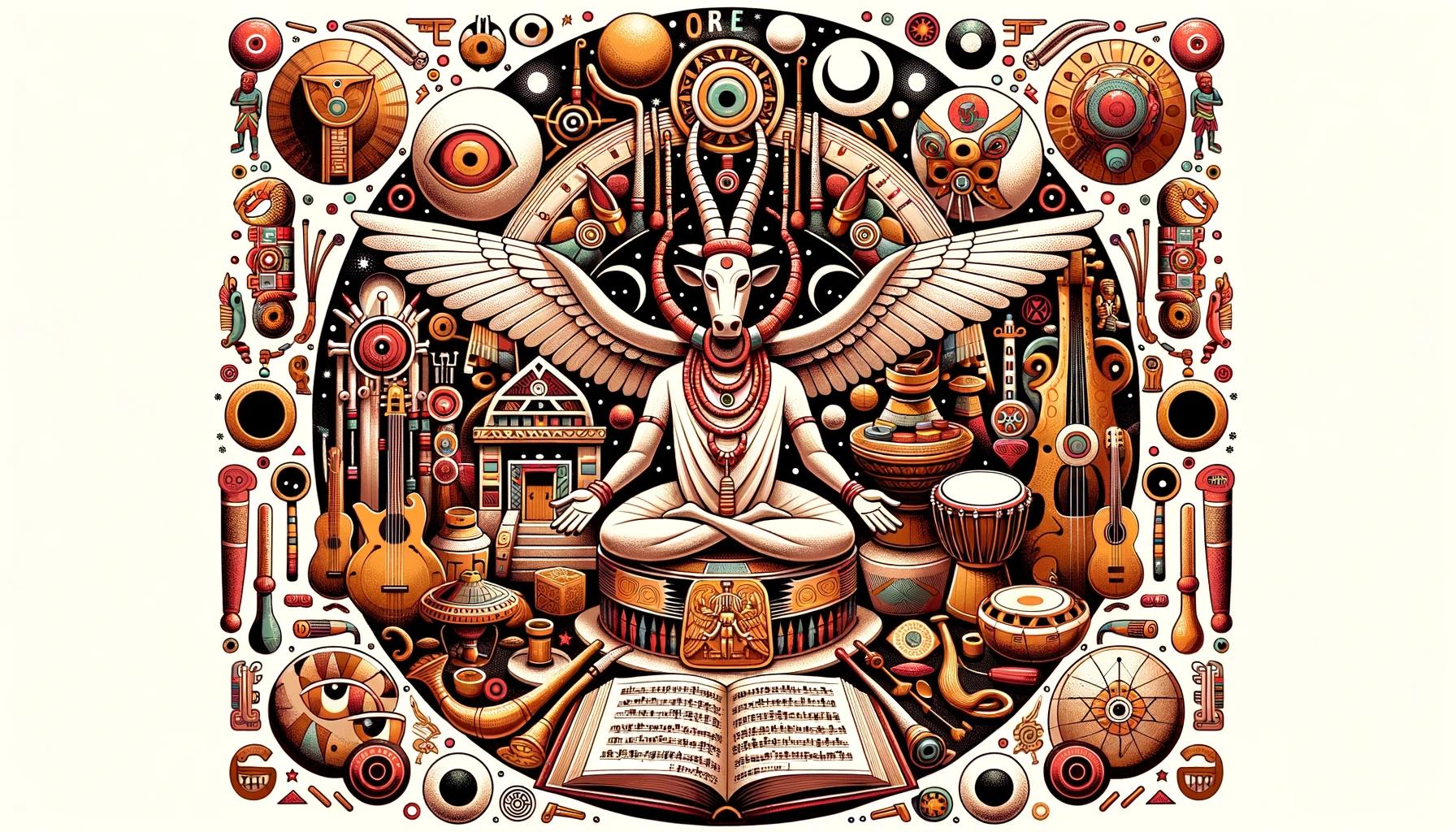Ikenga God: Unveiling the Ancient Power of the Nigerian Ikenga Deity
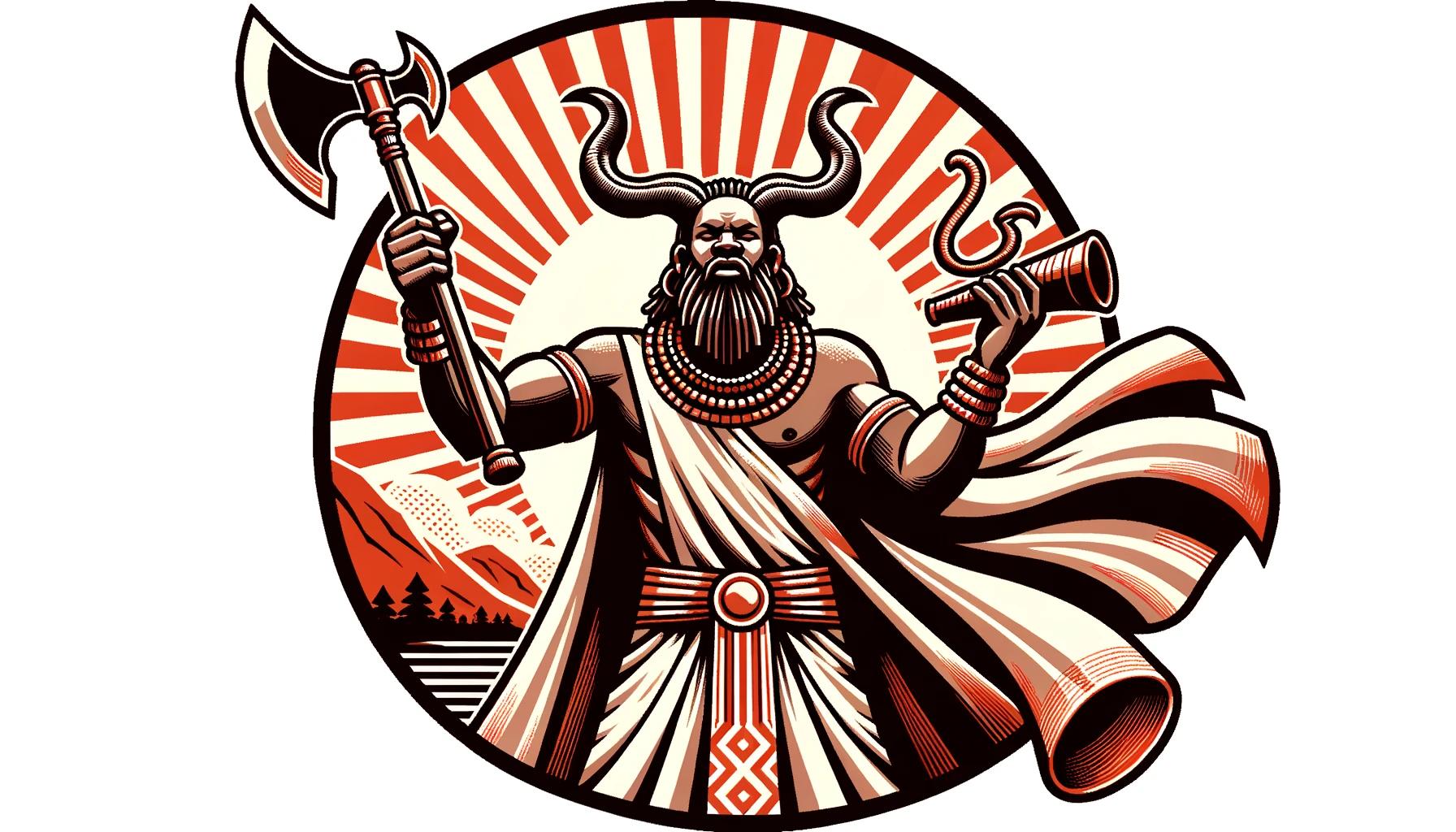
The Ikenga god holds a significant position in Igbo culture, symbolizing power and protection. This ancient deity, depicted with horns, a human-like figure, and a prominent right hand, plays a vital role as a personal guardian and a representation of strength.
Its influence extends beyond individual lives, shaping the Igbo calendar, rituals, and community traditions. This article explores the origins, physical characteristics, cultural significance, and spiritual power of the Ikenga god, highlighting its unique place among other African deities.
Additionally, we’ll delve into the modern-day legacy and revitalization efforts of Ikenga worship in Igbo culture.
The Origins and Significance of the Ikenga God
The Ikenga god holds a profound cultural significance within Igbo society, encapsulating the essence of power and achievement. It represents an embodiment of ancestral strength and is revered as a personal deity by individuals seeking success in various endeavors.
Through its symbolic figure and historical context, the Ikenga god embodies the values and aspirations of the Igbo people.
The Cultural Significance of Ikenga in Igbo Society
In Igbo society, the Ikenga god symbolizes personal achievements, strength, and individual empowerment. It serves as a guiding force for individuals pursuing success in their professional, social, and spiritual lives. The Ikenga figure is seen as a manifestation of personal power, reflecting the values of hard work, determination, and courage deeply ingrained in Igbo traditions.
The Symbolism Behind the Ikenga Figure
The physical features of the Ikenga figure hold symbolic significance. The horns, often displayed on the head of the deity, represent power, authority, and aggression. They serve as a visual representation of the deity’s ability to overcome obstacles and protect its devotees.
Additionally, the prominent right hand of the Ikenga god signifies strength, skill, and the ability to accomplish goals.
The Historical Context of Ikenga Worship
The worship of the Ikenga god has deep roots in Igbo history and mythology. Its origins can be traced back to ancient times when it was believed to have been handed down by the ancestors.
The rituals and practices associated with Ikenga worship have evolved over the centuries, adapting to societal changes while preserving its core significance as a powerful deity of personal achievement and protection.
Understanding the Physical Characteristics of Ikenga God
The physical characteristics of Ikenga god play a vital role in its symbolism and representation. Let’s delve into the three key aspects that define the physicality of Ikenga: the depiction of the head, horns, and human features; the importance of the right hand; and the inclusion of animal representations in Ikenga figures.
Depiction of Ikenga: Head, Horns, and Human Features
The depiction of Ikenga showcases a unique amalgamation of human and animal-like traits. The head of Ikenga often takes on a human form, highlighting the connection to humanity. It symbolizes the essence of divine power and intellect attributed to this deity.
Additionally, the presence of horns symbolizes strength, fertility, and dominance, solidifying the god’s role as a protector and a guide.
The Importance of the Right Hand in Ikenga
The right hand of Ikenga holds significant importance in its representation. It is depicted in a clenched fist, signifying power, authority, and the ability to conquer obstacles. The clenched fist represents determination and resolute action in achieving goals and overcoming challenges.
It is a testament to the deity’s role as a warrior and protector against adversity, both physical and spiritual.
Animal Representation in Ikenga Figures
Ikenga figures often incorporate animal motifs, adding another layer of symbolism. Animals like the ram, python, or leopard are commonly featured alongside the main figure. Each animal carries its own symbolic meaning; the ram signifies power and bravery, the python represents wisdom and divination, while the leopard embodies strength and agility.
These animal representations further enhance the deity’s connection to nature and its associated virtues.
In conclusion, the physical characteristics of Ikenga god combine human, animal, and divine elements to evoke a sense of power, protection, and deep symbolism.
The depiction of the head, horns, and human features highlight its connection to humanity, while the right hand symbolizes strength and determination. Animal representations further enrich the intricate tapestry of Ikenga figures, underscoring its connection to the natural world and its associated traits.
Understanding the physicality of Ikenga is essential to grasp the profound significance this deity holds in Igbo culture and spirituality.
The Role of Ikenga in Igbo Community and Individual Life
The Ikenga god holds a prominent position within the Igbo community, serving various essential roles in individuals’ lives and community practices. This section explores the significance of Ikenga as a personal guardian and protector, its influence in the Igbo calendar and rituals, and its representation as a warrior deity and symbol of power.
Ikenga as a Personal Guardian and Protector
Ikenga plays a crucial role as a personal guardian and protector for individuals within the Igbo community. Believed to possess divine qualities, Ikenga is called upon for guidance, strength, and defense against malevolent forces.
It is viewed as a companion and source of inspiration, providing individuals with the drive and determination to overcome challenges and achieve personal goals.
Those who revere Ikenga often keep a physical representation, such as a statue or figurine, in their homes or personal spaces.
This serves as a visual reminder of their connection to the deity and a symbol of protection. Rituals and offerings are made to honor Ikenga, ensuring its continuous presence and support in their lives.
Ikenga’s Influence in Igbo Calendar and Rituals
The presence of Ikenga permeates the Igbo calendar and rituals, marking significant events and celebrations throughout the year. Ikenga is honored during various ceremonies, such as harvest festivals, initiation rituals, and ancestral worship.
These occasions serve as a collective expression of gratitude and reverence for the deity’s blessings, including personal achievements, bountiful harvests, and success in endeavors.
During these rituals, special prayers and offerings are made to Ikenga, seeking its continued favor and protection for the community as a whole.
The belief in Ikenga’s presence during these events strengthens the communal bonds and reinforces the connection between individuals and their shared heritage.
Ikenga as a Warrior Deity and Symbol of Power
Ikenga is often depicted as a warrior deity, embodying the strength, courage, and power of the Igbo people.
Its physical features, such as muscular form and weapon-like attributes, symbolize its role as a protector and enforcer of justice. Ikenga represents the resilience and determination of the Igbo community, serving as a reminder of their ability to overcome adversity and protect their traditions.
The association of Ikenga with power extends beyond its role as a personal guardian. It also serves as a symbol of authority and leadership within the community. It is not uncommon to find Ikenga figures in important spaces, such as shrines, community halls, or the households of respected individuals.
This signifies a reverence for Ikenga’s power and serves as a visual representation of the respected positions held by those within the community.
In conclusion, the Ikenga god plays a multifaceted role in Igbo community and individual life.
It serves as a personal guardian and protector, influences the Igbo calendar and rituals, and embodies the qualities of a warrior deity and symbol of power. The reverence and belief in Ikenga strengthen the communal bonds and inspire individuals to strive for personal and collective success.
Comparisons with Other African Gods and Deities
In exploring the rich African pantheon, the Ikenga god stands out as a unique and powerful deity within the Igbo culture. Let us delve deeper into the comparisons between Ikenga and other African gods and deities, highlighting their similarities, differences, and the cultural exchange that has occurred throughout history.
Similarities and Differences with Edo and Other West African Deities
While each African ethnic group has its own distinct deities, parallels can be drawn between Ikenga and deities worshiped by the Edo people and other West African communities. Like Ikenga, many deities in these regions embody strength, protection, and guidance.
However, subtle differences emerge in the specific attributes, rituals, and mythologies associated with each deity.
- Edo Deities: The Edo people’s worship of deities such as Ogun and Osanyin shares similarities with Ikenga.
These deities also represent power, warfare, and herbal medicine, connecting the Igbo and Edo cultures through shared spiritual themes.
- West African Deities: Beyond the Edo, various other West African ethnic groups worship horned deities akin to Ikenga.
Orisha cults in Yoruba culture, for example, have deities like Esu and Ogun that resonate with the power and symbolism of Ikenga.
Ikenga’s Place among Other African Horned Deities
Among the African horned deities, Ikenga holds a significant position due to its distinct blend of characteristics and its prominent role in Igbo society.
While other horned deities in African cultures symbolize fertility, guardianship, or divine royalty, Ikenga stands out as a representation of personal power, individual achievement, and prowess.
- Oshun: In Yoruba tradition, Oshun represents beauty, love, and fertility, and while she is associated with horns, her symbolism differs from that of Ikenga.
- Amun: Among the ancient Egyptians, Amun was portrayed as a ram-headed deity associated with creation and fertility.
His symbolism overlaps with the Ikenga god, as both embody strength and creative power.
Cultural Exchange: Ikenga’s Influence Beyond the Igbo Community
The cultural exchange between the Igbo community and other African ethnic groups has allowed the influence of Ikenga to extend beyond its place of origin. Throughout history, trade routes, migrations, and intercultural interactions have facilitated the spread of Ikenga worship and its impact on adjacent cultures.
- Igbo-Dahomey Connection: The Igbo people’s contact and interaction with the Dahomey Kingdom exposed the latter to the usage of deities resembling Ikenga in their society. This exchange further enriched the spiritual practices and beliefs of both cultures.
- Atlantic Slave Trade: The transatlantic slave trade resulted in the dispersal of Igbo people to various regions, including the Americas.
As a result, Ikenga’s influence and symbolism can be found in Afro-Caribbean religions such as Santería and Candomblé.
- Contemporary Diaspora: Today, Ikenga’s influence transcends borders, with Igbo communities in the United States and Europe carrying on the worship and symbolism of the deity, shaping their cultural practices and spiritual beliefs.
By understanding the comparisons between Ikenga and other African gods and deities, we gain insights into the shared cultural narratives, distinctiveness, and interconnectedness of African spirituality.
Interpreting the Spiritual Power of Ikenga God
Interpreting the spiritual power of Ikenga God provides a fascinating insight into the depths of Igbo culture and beliefs. This section explores various aspects related to the spiritual significance of Ikenga, shedding light on its profound symbolism and enigmatic power.
The Ram Symbolism in Ikenga Worship
One intriguing aspect of Ikenga worship is the utilization of ram symbolism. In Igbo society, the ram is associated with strength, fertility, and sacrifice. Within the context of Ikenga worship, the ram serves as a sacrificial offering to honor the deity’s power and invoke its blessings.
The act of offering a ram represents a deep connection between the worshipper and Ikenga, symbolizing devotion and a desire for spiritual elevation.
Unlocking the Mysteries of Ikenga’s Timeless Power
The timeless power of Ikenga god has captivated scholars and devotees alike. Unlocking the mysteries behind this power requires delving into the intricate web of beliefs and practices surrounding Ikenga worship.
It involves exploring the spiritual rituals, chants, and offerings that are integral to connecting with Ikenga’s energy. By understanding and respecting these practices, individuals can tap into the potent energy and wisdom that Ikenga holds, unveiling the secrets of its timeless power.
Exploring the Creative Commons Attribution of Ikenga Figures
The artistic depiction of Ikenga figures holds a unique position within Igbo culture. These creative representations serve as a visual channel for capturing and expressing the divine essence of Ikenga god.
Through exploring the creative commons attribution of Ikenga figures, we unravel the diverse artistic traditions and varied interpretations of this powerful deity. This exploration offers insights into the cultural nuances and regional artistic styles that coexist within the Ikenga worship framework, showcasing the breadth of creative expression inspired by the god.
Unveiling the Ikenga Legacy in the Modern World
The Ikenga god holds a timeless legacy that extends beyond its historical origins. In today’s modern world, we continue to witness contemporary interpretations and adaptations of Ikenga, showcasing its enduring relevance and significance.
Contemporary Interpretations and Adaptations of Ikenga
Artists, scholars, and enthusiasts have embraced Ikenga as a source of inspiration, exploring its symbolism and incorporating it into various artistic mediums. Paintings, sculptures, and digital artworks now depict Ikenga in new and innovative ways, reflecting the evolving perspectives and creativity of contemporary artists.
Moreover, Ikenga’s influence has expanded into popular culture, with references and representations appearing in literature, music, and even fashion. The rich symbolism and visual appeal of Ikenga make it a captivating subject for modern creators seeking to explore African heritage and spirituality.
Revitalizing Ikenga Worship in Igbo Culture Today
Despite the challenges posed by modernization and external influences, efforts to revitalize Ikenga worship persist within Igbo culture. Communities and individuals are reclaiming their ancestral practices, recognizing the importance of preserving their cultural and spiritual heritage.
Rituals, ceremonies, and gatherings centered around Ikenga have experienced a resurgence, emphasizing the significance of honoring this ancient deity.
Furthermore, cultural organizations and religious institutions play a pivotal role in promoting and sustaining Ikenga worship.
These entities provide platforms for education, dialogue, and connection, fostering a sense of community and revitalization of traditional belief systems.
The Enduring Legacy of Ikenga for Future Generations
As we look ahead to the future, the enduring legacy of Ikenga carries immense importance for future generations. By embracing and understanding the cultural and spiritual significance of Ikenga, we ensure the preservation of Igbo traditions and the appreciation of African deities.
By passing down knowledge and teachings about Ikenga to younger generations, we ensure that this ancient god remains an integral part of Igbo identity and heritage. This legacy serves as a powerful reminder of the resilience, strength, and cultural richness of the Igbo people.
.

